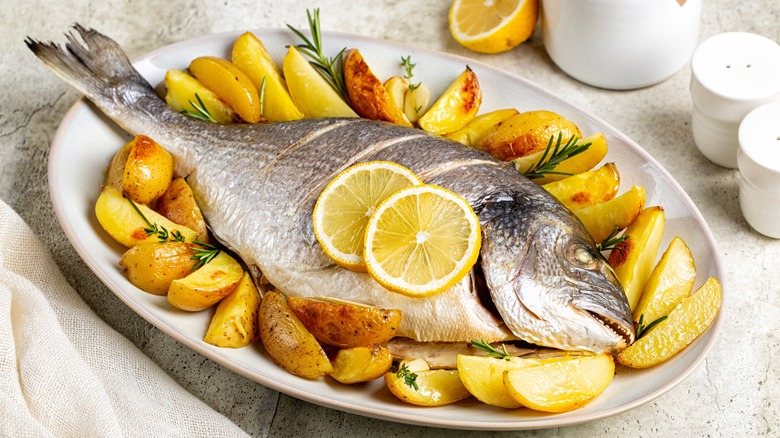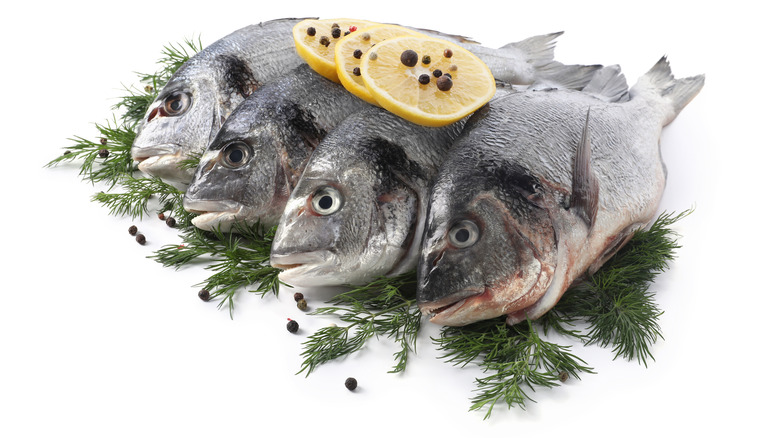The Best Type Of Fish To Cook Whole, According To A Chef
The art of cooking a whole fish is one that takes time and experience to master, but the results are well worth the effort. Becoming proficient in this arena is impressive to dinner guests and opens up wide culinary avenues of flavor, whether you're cooking for Good Friday, Lunar New Year, or weekend dinner. If you're a newcomer to this world or just looking to refine your skills, one of the biggest questions facing you is a foundational one: what kind of fish to choose.
Chef Laurent Tourondel, Executive Chef of L'Amico in New York City, gave Food Republic a clear answer to this question. "One of the best types of fish to cook whole is orata, a type of sea bream, which is found in the eastern Atlantic and Mediterranean." Orata, also known as dorade or gilt-head bream, is on the smaller side, often between one and 1.5 pounds. That makes it an ideal size to serve each whole fish as an individual portion for dinner guests.
Their size has another benefit when it comes to cooking them whole, according to Tourondel. "These types of fish are ideal for cooking whole because they are not very oily and don't yield large fillets, which makes them more prone to drying out if cooked in pieces. Keeping the fish whole helps retain moisture, especially given its thickness."
How to cook whole orata
Cooking the perfect fish starts with picking the freshest ones possible. There are several valuable tests to determine the best possible choice, according to chef Eric Ripert. The eyes of the fish should be clear and not cloudy or shriveled, and the gills should be bright pink or red.
Once you've got your fish picked out, it's time to add your seasoning. Luckily, Laurent Tourondel has advice in this arena as well. "When grilling, I like to score the skin of the fish and season it, placing lemon and bay leaves under the skin for added flavor," the French chef says. "Once it's finished cooking, I season it generously with olive oil, sea salt, and a squeeze of fresh lemon juice to enhance its natural taste." He goes on to say that tomato, saffron, or Calabrian chili aioli make for strong accompaniments to the orata.
How you cook a fish depends in part on what kind it is. Orata is a flaky fish, which makes it one of the few proteins not meant for a cast iron. Grilling, steaming, or baking the fish wrapped in tinfoil or banana leaves are great options to preserve the integrity of the fish while keeping the meat perfectly tender.


